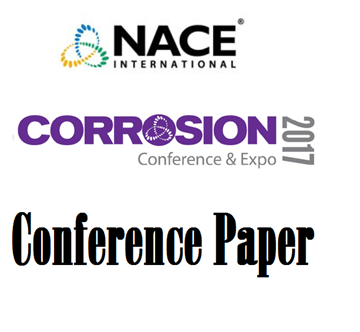Search
Factors Affecting Vapor Phase H2S Concentrations in Asphalt and Mitigation via Scavengers
Also Purchased
Electrochemical Model of Sour Corrosion of Mild Steel - Validation at High H2S Partial Pressures
Product Number:
51317--9098-SG
ISBN:
9098 2017 CP
Publication Date:
2017
$20.00
00491 H2S LIQUID SCAVENGERS, THEIR CORROSIVITY PROPERTIES AND THE COMPATIBILITY WITH OTHERS DOWN STREAM PROCESSES.
Product Number:
51300-00491-SG
ISBN:
00491 2000 CP
$20.00
02240 MOLECULAR MODELING OF CORROSION OF IRON IN H2S ENVIRONMENTS
Product Number:
51300-02240-SG
ISBN:
02240 2002 CP
$20.00




